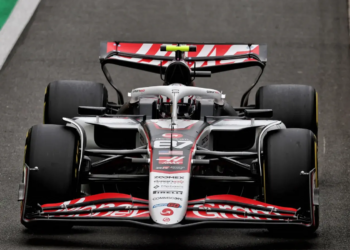The FIA has revealed it will undergo an analysis of the Formula 1 Qatar Grand Prix amid complaints from drivers regarding the extreme weather conditions encountered.
Sunday’s race at the Lusail International Circuit witnessed several drivers struggle with the searing humidity on display.
An already unwell Logan Sargeant retired early from the race and was later treated for intense dehydration, while Williams team-mate Alex Albon suffered from acute heat exposure.
Lance Stroll highlighted that he was “fading in and out” with “20 laps to go”, and Esteban Ocon admitted to vomiting inside the opening stages.
Those problems led the likes of Lando Norris and Max Verstappen to declare that F1 had “found the limit” of acceptable conditions to compete in.
Now, the FIA has released a statement, stating it intends to look into the matter to “provide recommendations for future situations of extreme weather conditions.”
The sport’s governing body has also conceded that drivers “should not be expected to compete under conditions that could jeopardise their health or safety.”
Meanwhile, the upcoming medical commission meeting in Paris will discuss possible research into improving the efficiency of airflow into the cockpit and potential changes to the F1 calendar to avoid a repeat situation from occurring.
“The FIA notes with concern that the extreme temperature and humidity during the 2023 FIA Formula 1 Qatar Grand Prix had an impact on the wellbeing of the drivers,” the FIA’s statement began. “While being elite athletes, they should not be expected to compete under conditions that could jeopardise their health or safety.
“The safe operation of the cars is, at all times, the responsibility of the Competitors, however as with other matters relating to safety such as circuit infrastructure and car safety requirements, the FIA will take all reasonable measures to establish and communicate acceptable parameters in which Competitions are held.
“As such, the FIA has begun an analysis into the situation in Qatar to provide recommendations for future situations of extreme weather conditions.
“It should be noted that while next year’s edition of the Qatar Grand Prix is scheduled later in the year, when temperatures are expected to be lower, the FIA prefers to take material action now to avoid a repeat of this scenario.
“A number of measures will be discussed at the upcoming medical commission meeting in Paris. Measures may include guidance for competitors, research into modifications for more efficient airflow in the cockpit, and recommendations for changes to the calendar to align with acceptable climatic conditions, amongst others.
“Research from other series, such as cross-country events in extreme climates, will be examined for potential applications to circuit events. The FIA’s commitment to closer cooperation between technical, safety and medical departments under the leadership of the FIA President will facilitate this process.”









